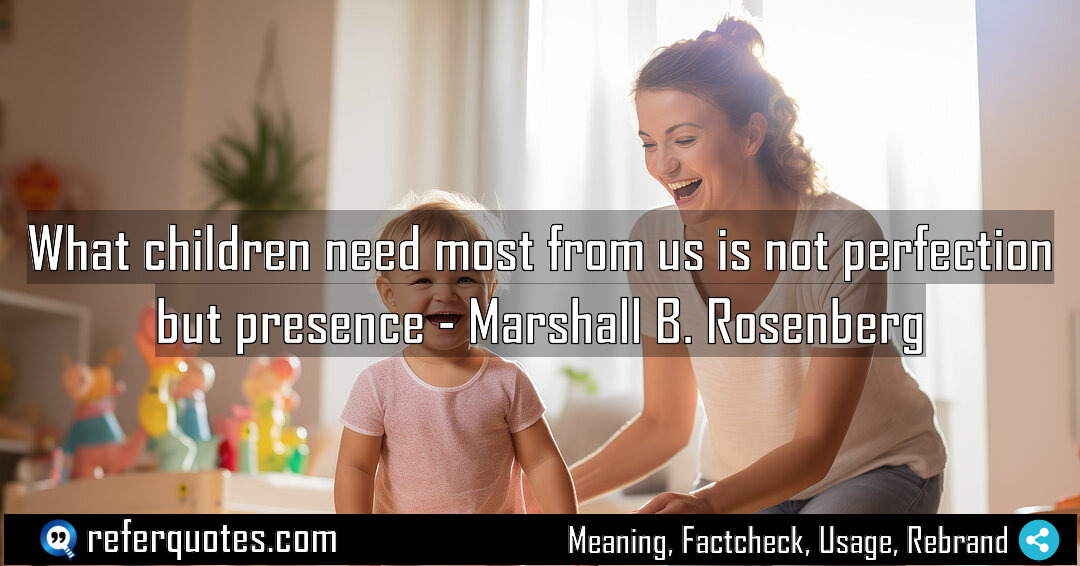What children need most from us is presence, not perfection. This simple truth flips the script on modern parenting anxiety. It’s about showing up authentically, not perfectly.
Share Image Quote:Table of Contents
Meaning
The core message is that your genuine, attentive connection with a child is infinitely more valuable than any attempt to be a flawless, mistake-free parent.
Explanation
Look, I’ve seen this play out so many times. We get so caught up in doing everything “right”—the right foods, the right schools, the right responses to every tantrum. We’re trying to perform perfection. But what Rosenberg nails here is that this performance creates a barrier. Kids don’t connect with a perfect facade; they connect with a real, present human being. Your presence—your calm, focused attention, even when you’re tired or unsure—is the soil in which their sense of security and self-worth grows. It’s the foundation for everything. It tells them, more than any words ever could, that they are valuable and loved.
Quote Summary
| Context | Attributes |
|---|---|
| Original Language | English (3668) |
| Category | Relationship (329) |
| Topics | acceptance (73), authenticity (101), presence (80) |
| Literary Style | minimalist (442) |
| Emotion / Mood | hopeful (357), reassuring (55) |
| Overall Quote Score | 86 (262) |
Origin & Factcheck
This wisdom comes directly from Marshall B. Rosenberg’s 2005 book, Raising Children Compassionately. It’s a cornerstone of his Nonviolent Communication (NVC) work. You sometimes see similar sentiments floating around, but this specific, powerful phrasing is Rosenberg’s.
Attribution Summary
| Context | Attributes |
|---|---|
| Author | Marshall B. Rosenberg (190) |
| Source Type | Book (4032) |
| Source/Book Name | Raising Children Compassionately: Parenting the Nonviolent Communication Way (135) |
| Origin Timeperiod | Contemporary (1615) |
| Original Language | English (3668) |
| Authenticity | Verified (4032) |
Where is this quotation located?
| Quotation | What children need most from us is not perfection but presence |
| Book Details | Publication Year/Date: 2004; ISBN/Unique Identifier: 9781892005140; Last edition: PuddleDancer Press, 1st Edition, 48 pages. |
| Where is it? | Chapter: The Gift of Imperfection, Approximate page from 2004 edition |
